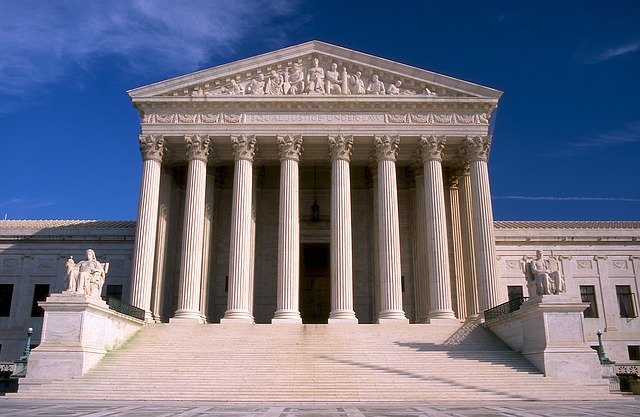Obamacare and the Supreme Court Today
President Barack Obama’s big health care reform law is back at the Supreme Court. Justices are expected to issue a decision in June on a new challenge to the law. Depending on which way they rule, either nothing will change or people across the country will start losing their health insurance and the already heated politics of Obamacare will get even more fiery.
Obamacare is at the Supreme Court? Is this a rerun?
Nope. Although the Supreme Court upheld the constitutionality of the Affordable Care Act’s individual mandate in 2012 (and weakened the law’s birth control coverage provisions last year), that wasn’t the end of Obamacare’s legal troubles. Justices heard arguments in March about another lawsuit, King v. Burwell, and this one isn’t about whether Obamacare is constitutional but whether the federal government correctly implemented the law. King v. Burwell is at least as big a deal as the 2012 case, becausehealth insurance coverage for millions of people is at stake.
What is this new lawsuit about anyway?
The plaintiffs, a group of regular people recruited by conservative and libertarian think tanks opposed to the Affordable Care Act, claim that there’s a brief phrase in the law that makes health insurance tax credit subsidies illegal unless they go through a health insurance exchange — that is, an online marketplace for health plans — that was set up by a state government. That leaves out the 34 states where the federal government runs the exchange instead.
King v. Burwell is one of several basically identical lawsuits arguing that the IRS broke the law when it published a regulation allowing subsidies to go to people in states with federally created exchanges. Not surprisingly, Republican officials eventuallyembraced this lawsuit as a cool, new way to ruin Obamacare.
And how has the Obama administration responded to this?
“That’s nonsense!” would be a good way to summarize the legal response to this lawsuit, but of course it’s more complicated than that. What the government argues is that isolating the phrase “an exchange established by the state” from the rest of the lengthy statute is absurd because many other parts of the law assume subsidies are available nationwide, no matter who runs the exchange. Defenders of Obamacare have also emphasized that this is what Obama and the Democrats who wrote the law in Congress always said the Affordable Care Act would do.

How is the Supreme Court expected to rule?
Even though the high court is split between five Republican appointees and four Democratic ones, they won’t necessarily decide the case along partisan lines. Of course, during oral arguments, conservatives like Justice Antonin Scalia and Justice Samuel Alito seemed more inclined to accept the plaintiffs’ contention that the plain language of the law can’t be ignored. Meanwhile, liberals such as Justice Ruth Bader Ginsburg and Justice Elena Kagan made comments suggesting they agree with the Obama administration that the greater context of the law makes it clear subsidies were intended nationally, and that the IRS has the authority to interpret the language that way. And Justice Anthony Kennedy, a Republican appointee seen as a swing vote, expressed concern that reading the law in the manner favored by the plaintiffs would create a “constitutional problem,” since it would leave states a choice between establishing exchanges or seeing their insurance markets seriously damaged. Chief Justice John Roberts, who was the deciding vote in the 2012 case, barely spoke that day.
What happens if Obama wins the case?
Things stay the way they are now: Obamacare enrollees can keep their subsidies, and the politicians can continue yelling at each other about whether that’s good or bad.
And what if the plaintiffs win?
The first thing that would happens is those subsidies would disappear for about 7.5 million people in the 34 states that have federal health insurance exchanges. Those tax credits only go to people with low or moderate incomes — up to about $47,000 for a single person or $97,000 for a family of four. Without that assistance, most of these enrollees wouldn’t be able to afford their insurance anymore and would probably drop it, especially those with the lowest incomes receiving the biggest subsidies.
The subsidies would cease within weeks of a Supreme Court ruling for the plaintiffs, unless the justices decided to “stay” their ruling — that is, build in a delay in order to give politicians time to maybe do something to protect those people. Absent such protections, the Rand Corp. estimates that 8 million people who have health coverage today would wind up uninsured.
Does any of this affect me in any way?
If you don’t get your health insurance from a federal exchange created by the Affordable Care Act, then it doesn’t, no matter what the Supreme Court decides. That means anybody whose health plan comes from a job or a government program like Medicare or Medicaid. It also means anybody whose insurance came from an Obamacare exchange their home state set up, which includes people in California, Idaho, Kentucky and 13 other states, as well as in the District of Columbia.
If you used an Obamacare exchange in those other states, though, a ruling against Obama is going to hit you in the wallet big-time, and that’s probably true even if you don’t get subsidies. Experts predict that when millions of people drop their coverage,the sickest ones will be most willing to pay the unsubsidized prices, because they need it more. That, in turn, will drive up expenses for insurance companies, and they’ll respond by raising rates.
Are Obama and the Republicans in Congress really going to let that happen?
It’s hard to predict how the politics would play out, but it would be ugly no matter what. The Obama administration says it can’t do anything about people losing their subsidies unless a new law is passed giving the administration the power to do so. Meanwhile, the Republicans who control Congress can’t reach a consensus about what to do. Some of them want to do nothing and just allow the subsidies to go away and premiums to go up, while others want to offer temporary relief as they go about dismantling the rest of Obamacare. Since Obama doesn’t want Obamacare dismantled and he doesn’t want people to lose their subsidies, he probably wouldn’t go for either of those options.
What about my state? Can the governor do anything?
States have always had the option of creating a health insurance exchange for their residents under the Affordable Care Act. Most of them didn’t, in part because of intense opposition to Obamacare in a lot of places and in part because it takes a lot of work and a lot of money. And while states could try to protect their citizens by rushing to get new exchanges in place after the Supreme Court ruling, there isn’t a lot of time and money to go around. Plus, every one of the states subject to the high court’s decision has a Republican governor and/or legislature, except Delaware.
Is it really that hopeless for people who’d lose their subsidies?
Not necessarily. If enough political pressure builds on Congress, Republicans might go along with at least a temporary restoration of the subsidies with few or no strings attached, if they were willing to take heat from conservatives about “endorsing” Obamacare. And despite its assertions, the Obama administration might be able to fast-track the approval of new exchanges in states where the politics compel Republicans to do so (although none of the ways the administration could theoretically do this have ever been tried, and their legality isn’t even totally clear).
Article extracted from the Huffington Post



